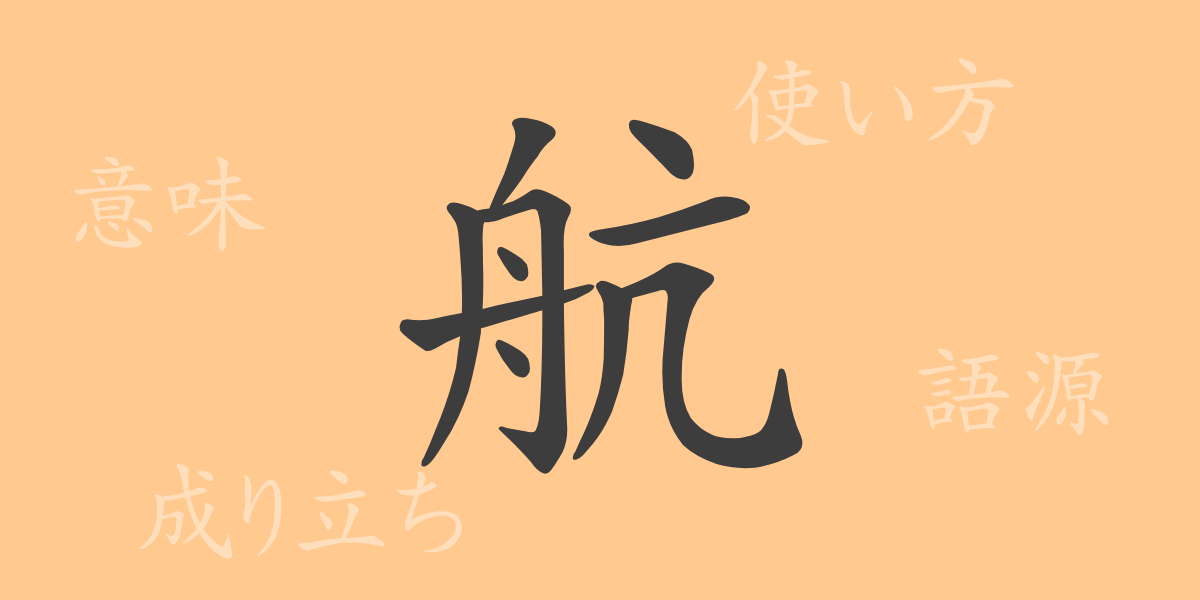The beauty and complexity of the Japanese language are often symbolized by its unique writing system. Kanji are a central element of this system, each carrying its own meaning and history. This time, we focus on one of Japan’s commonly used kanji, “航(こう)”, and delve into its charm. In this article, we will explore everything from the origin, meaning, usage, reading, stroke count, and radical of “航(こう)”. Additionally, we will touch on idioms and proverbs that use “航(こう)” to uncover the rich expressiveness of this character.
Origin of 航(こう)
The kanji “航(こう)” was created in ancient China to represent concepts related to the navigation of ships. This character is a compound ideogram that developed from pictograms, combining “舟(ふね)” (meaning ship) and “亢(こう)” (meaning go). This combination illustrates a “ship moving over water,” symbolizing “a ship’s progress.” Over time, “航(こう)” came to represent not only the movement of ships but also broader concepts of travel and navigation, such as “航行(こうこう)” (voyage) and “航空(こうくう)” (aviation).
Meaning and Usage of 航(こう)
The kanji “航(こう)” is primarily used in words related to travel and movement. Specifically, it refers to activities like “航海(こうかい)” (voyage) and “航空(こうくう)” (aviation), which involve travel over the sea and through the air. In a broader sense, it can also represent the journey of life, as in “人生の航路(じんせいのこうろ)” (life’s journey). Thus, “航(こう)” is a versatile kanji used both literally and figuratively.
Readings, Stroke Count, and Radical of 航(こう)
Understanding the shape and meaning of the kanji “航(こう)” involves several key pieces of information.
- Readings: On-yomi (Chinese reading) is “コウ(こう)”, with no kun-yomi (Japanese reading).
- Stroke count: 10 strokes.
- Radical: 舟部(ふねへん) (boat radical).
Idioms, Phrases, and Proverbs Using 航(こう)
There are numerous idioms, phrases, and proverbs in Japanese that include “航(こう)”. For instance, “航海日誌(こうかいにっし)” refers to a ship’s log, and “航空券(こうくうけん)” means an airplane ticket. The proverb “無事是良航(ぶじこれりょうこう)” translates to “safety is the best voyage,” derived from the desire for a successful journey. These expressions utilize the fundamental meaning of “航(こう)”—to move or travel.
Conclusion on 航(こう)
The kanji “航(こう)” encompasses diverse meanings and uses, from traveling by sea or air to metaphorically navigating life’s path. As a commonly used kanji in Japanese, it plays a crucial role in the language and culture. For learners of Japanese, understanding this kanji enriches their knowledge and appreciation of the language. Through this exploration, we hope to have deepened your understanding of “航(こう)” and the rich expressions it enables.

























